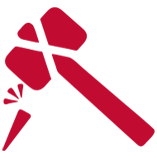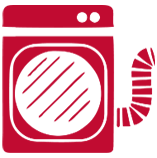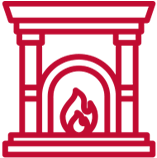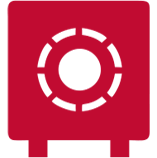 Major Problems That Denver Faces
Major Problems That Denver Faces
One of the most common issues that Denver homeowners face is dealing with the city’s unique climate and weather conditions regarding their roofs and, most specifically, their chimneys.
While an insurance company will cover any damage done to your chimney by what they deem a ‘sudden incident or accident,’ they will not cover any damage sustained naturally over time, as they will view that as a result of the homeowner’s neglect.
To avoid lots of financial expenses and heartache down the road, ensure you have the best chimney services nearby and combat the harshest forces Denver’s climate throws at you.
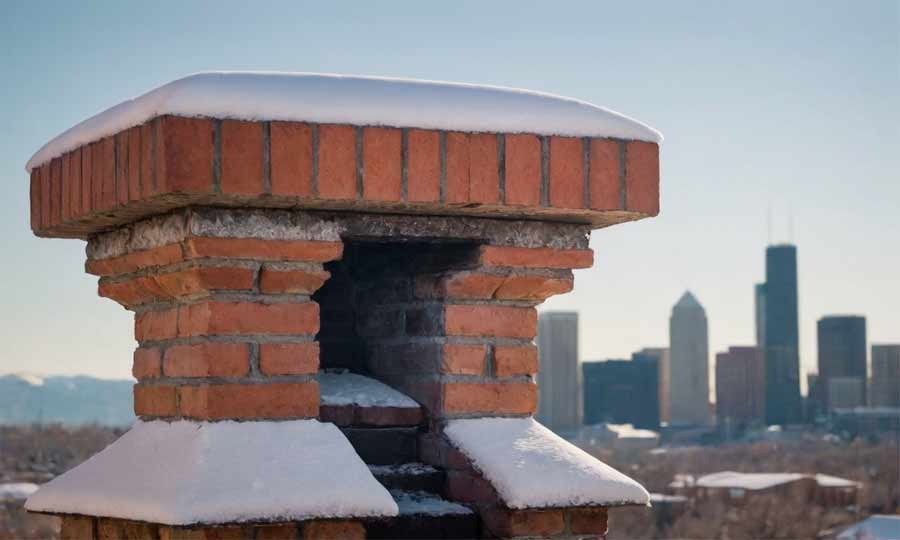
 Climate Change
Climate Change
Climate change is a global issue, but it’s an incredibly potent one in Denver, CO. From the amount of carbon emissions that the city produces alone through its unique landscape, the amount of individually driven automobiles, and the sheer number of coal-powered plants, many factors in Denver still actively contribute to the thinning of the ozone layer in this area.
This accelerated climate change makes for an especially volatile climate for the city and state.
Poor Air Quality
Due to these issues, the air quality in Denver, CO, is very poor overall. This means that bad conditions are exacerbated into even worse conditions. Denver, CO, has been left reeling from the effects of drought for several years now, and the poor quality leads to burning even more quickly under such conditions.
For your chimney, this means it is essential to keep an eye on the weather. If in a drought, the fireplace will burn that much faster and drier, which can cause substantial issues for your chimney maintenance if not adequately accounted for.
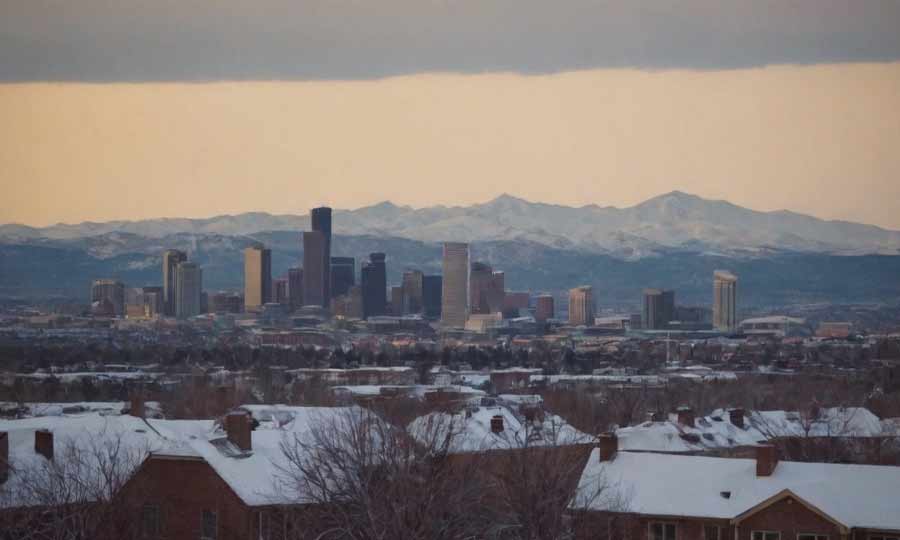
 Particulate Pollution
Particulate Pollution
With all of the carbon monoxide emissions, heat, smoke, and debris in the area, particulate pollution is high in Denver, CO.
The sheer amount of dirt and other elements kicking around in the air from the desert and suburban areas can also lead to much more volatile ignitions of a fireplace, necessitating fireplace repair.
Carbon Monoxide
With so many issues already in the area, all of which contribute to the more significant problems at hand, cutting down on your chimney’s emissions is best for the area and your home.
Excessive carbon monoxide emissions can cause cracks or leaks in your chimney’s crown or chimney cap. If the crown is cracked, water can more easily seep in and cause damage, such as mold and mildew, to the interior of your chimney.
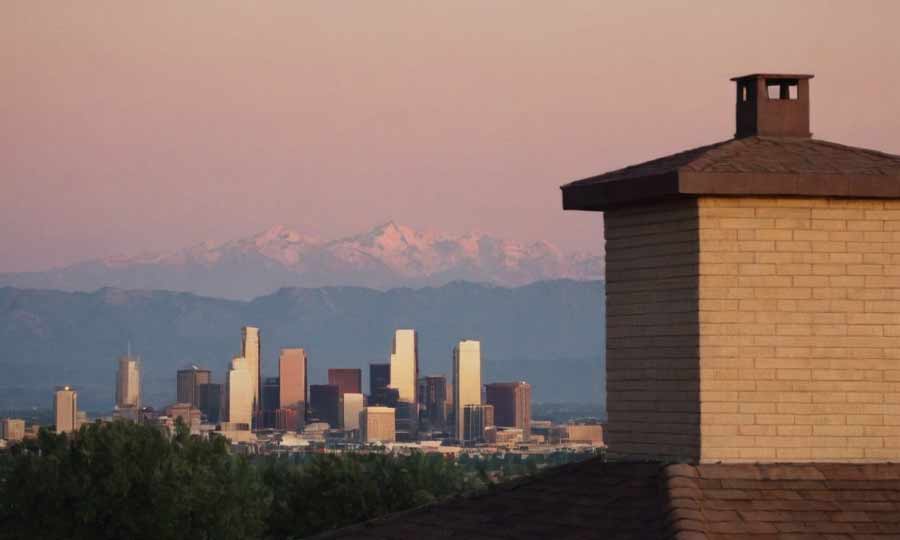
Warm Air
The generally dry air is mainly devoid of moisture and can lead to a chimney’s fire burning much more quickly and fiercely than expected. The temperatures are exceedingly high for most weeks, with slight variations from one moment to another.
 Winter Season
Winter Season
For as hot and dry as the climate often is, winter is freezing. It involves wind gusts, heavy snowfall and ice, and freezing/thawing cycles.
Each winter, one must deal with different issues to keep their chimney and home safe, such as insulation, water damage, and water flow.
The winters in Denver, CO, will test your heating system, insulation system, and water system for weeks on end with the cold weather.
Anticipating Annual Precipitation
With only 8 to 15 inches of annual rain on average, the more significant issue for Denver, CO, residents is combatting the arid climate.
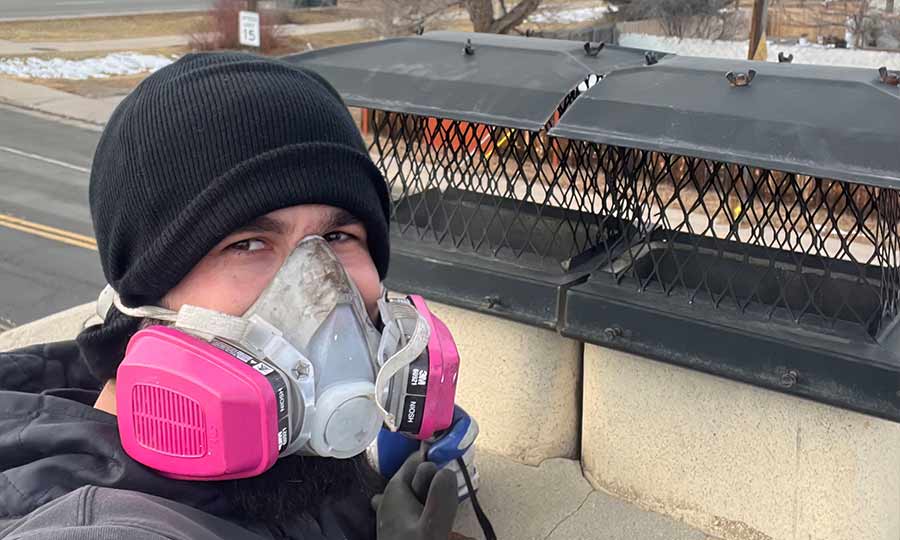
Taking Care of Chimney Problems
For all of the unique challenges that Denver’s climate presents, there are corresponding chimney problems and ways in which you can work to protect your home, chimney, and family.
 Possible Fire Hazard
Possible Fire Hazard
The biggest one is possible fire hazards. With Denver’s lack of moisture, you must schedule a chimney inspection annually to ensure no corrosive buildups or lodged debris, as the climate can quickly cause these minor issues to become substantial fire hazards.
Chimney Liner
A chimney liner can improve your chimney’s draft, reduce carbon monoxide issues, and avoid fire hazards.
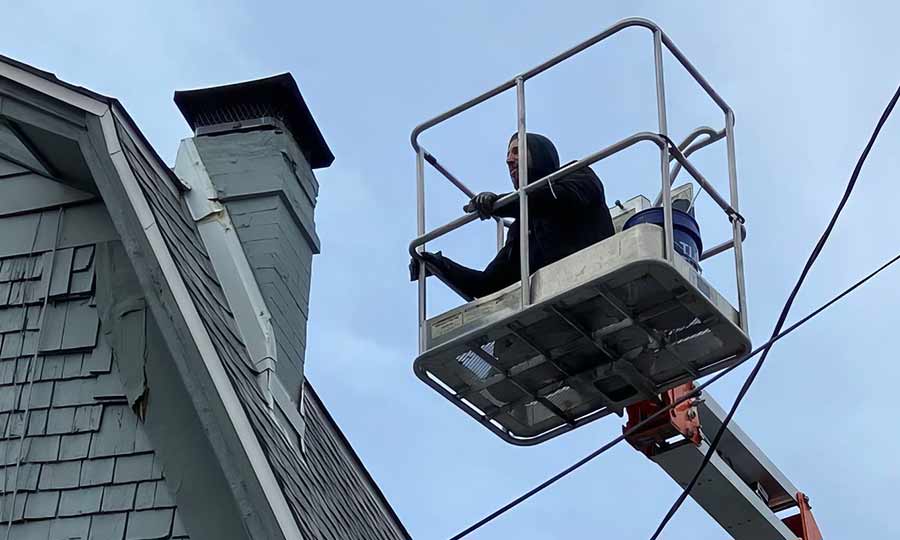
Chimney Sweep
Having a chimney sweep clean your chimney regularly is a great way to combat a litany of possible issues.
This will ensure that your chimney is in top shape, that it is safe to use your fireplace (read more about the fireplace safety guide here), and that no water damage has been incurred. To not do so is to risk much more significant issues later on.
Chimney Repairs
Should these issues prove too great for you or a chimney sweep to have fixed, further chimney repair may be needed. Chimney repair services must be done quickly to ensure the safety of your home.
 Home’s Safety
Home’s Safety
There are a few simple steps one can take around the home to ensure the safety of the operation of one’s chimney further.
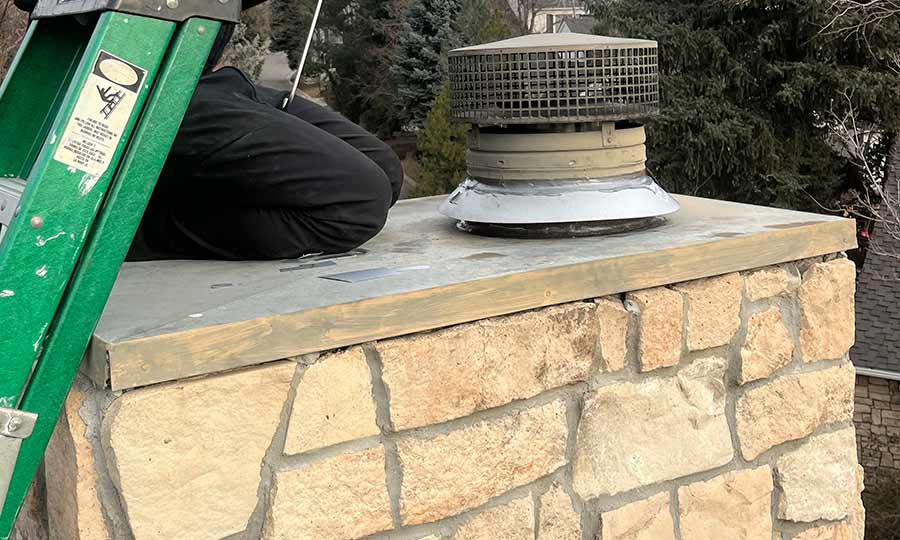
Cleaning Exterior Walls
Just as your fireplace and chimney can generate hazardous and flammable buildup if not correctly cleaned, so too can the home’s exterior walls.
Often, a chimney’s output can be blown right back against the walls of the home outside, so scheduling regular cleaning services for the walls and bricks of the house is exceedingly helpful.
Property Owners’ Roofs
Another element of the home drastically affected by your chimney is the roof. Have annual safety inspection services look at your roof to ensure there is no need for repair work.
Clean Gutters
Cleaning the gutters is one of the most efficient ways to avoid fire hazards, especially in the dry Denver heat.
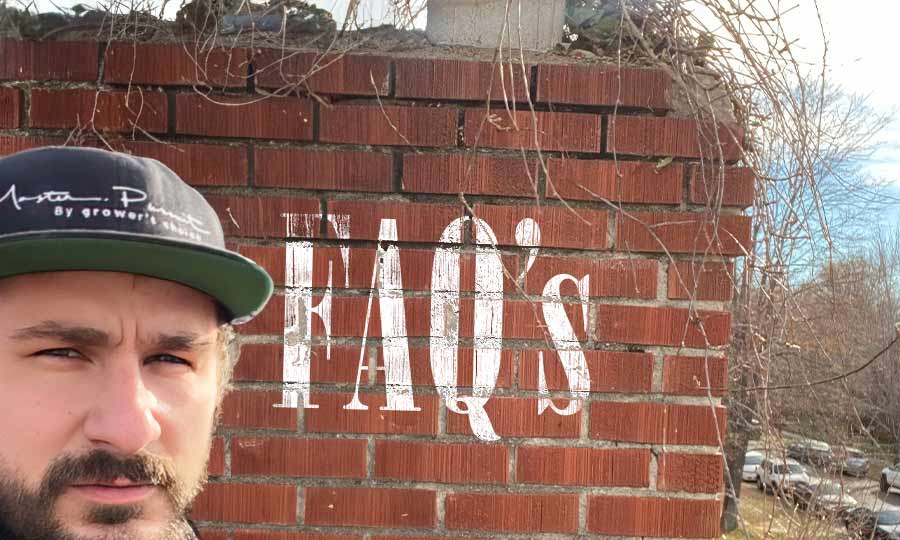
 FAQs
FAQs
How do you prepare for a freeze in Colorado?
Shut off the water valve to avoid freezing, close up the chimney to prevent an influx of cold air, and stay dry.
How can I keep my house warm in the winter?
By intelligently utilizing your fireplace inserts, wood burning, and having inspection services look at your home and possible repair work before the winter season to ensure it’s all safely sealed up.
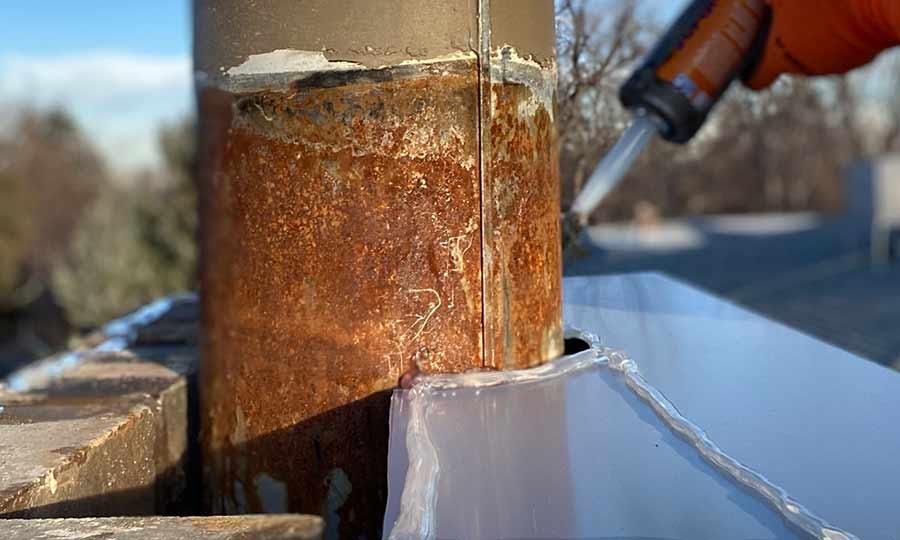
 Conclusion: Ensuring Your Denver Chimney Thrives
Conclusion: Ensuring Your Denver Chimney Thrives
In Denver’s unique climate, taking care of your chimney is crucial to avoid unexpected repairs and ensure your home’s safety.
Regular chimney sweep, investing in a good chimney liner, and addressing repairs swiftly can significantly mitigate risks.
Whether it’s battling the dry, hot summers or the freezing winters, these steps are key to protecting your chimney against the harsh Colorado weather.
By staying proactive with your chimney care, you’re not just preserving a crucial part of your home; you’re also ensuring the warmth and safety of your living space throughout the year.




